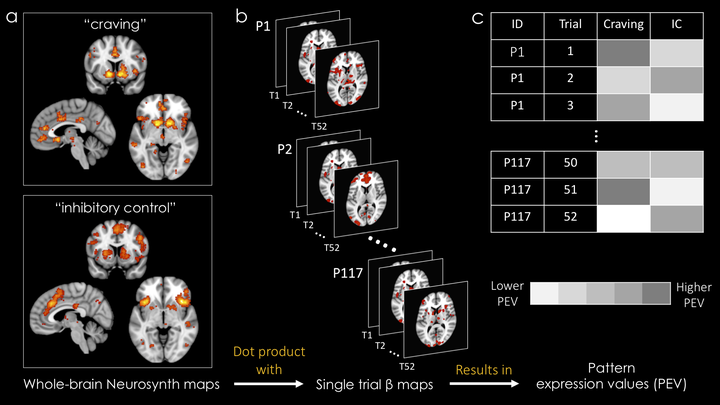Comparing Cognitive and Affective Predictors of Craving

Health-risking behaviors (HRBs), e.g., excessive consumption of alcohol, tobacco, drugs and energy-dense food, contribute to long-term health problems, particularly among individuals who experienced early life adversity (EA). Though traditional executive control tasks are commonly assumed to be relevant for predicting real-world HRBs, recent work has called into question the ecological and predictive validity of these tasks. This study explores the predictive validity of cognitive and affective neural measures derived from a more passive cue reactivity task in a community sample of adults with self-control problems and a history of early adversity. We extracted trial-level estimates of whole-brain expression of canonical “inhibitory control” and “craving” patterns while participants viewed images of personally relevant health-risking substances during the cue reactivity task. Statistical modeling showed that greater trial-level expression of the “craving” and “inhibitory control” patterns predicted higher and lower desire ratings, respectively, for cue reactivity stimuli. However, only “craving” pattern expression predicted measures of real-world craving in daily life. Taken together, these results suggest that, among individuals with self-control problems, the real-world predictive validity of passive neural measures of affective processes may be superior to that of neural measures of executive control.